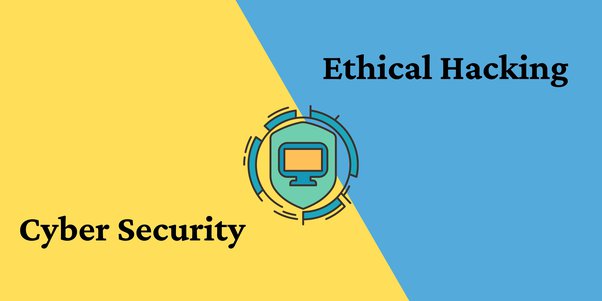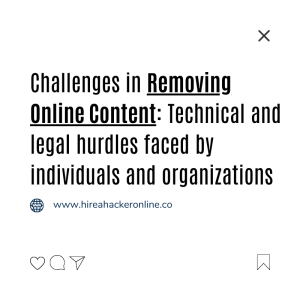You shouldn’t assume no one is observing you just because you’re alone in your room perusing the internet. More than 90% of computers worldwide have some kind of spyware installed without their owners’ knowledge. Hackers may access your personal data and use it to steal your cash, files, and even your identity with the use of this malicious software.
Spyware: What is it?
Spyware is malicious software that infiltrates a user’s computer, collects information about the user and the device, and then distributes it to other parties without the user’s knowledge or agreement. A piece of software designed to access and harm a device without the user’s permission is typically understood as spyware.
Spyware gathers private and sensitive data that it sells to advertising, data gathering companies, or unscrupulous individuals in order to make money. Attackers use it to trace, take, and sell user information such internet activity patterns, credit card numbers, and bank account information, as well as to steal user credentials to impersonate users.
One of the most popular cyberattack techniques is spyware, which may be difficult for consumers and enterprises to detect and has the potential to seriously damage networks. Additionally, it makes organizations susceptible to data breaches and exploitation, often degrades device and network performance, and hinders user engagement.
Spyware types.
Attackers infect computers and other devices with a variety of spyware. Each sort of spyware collects information for the attacker, with the most basic varieties also monitoring and relaying information to a third party. However, more sophisticated and deadly malware will also alter a user’s system, exposing them to further dangers.
Among the most popular varieties of spyware are:
- Adware: This is software that resides on a device and watches users’ online activities before selling their information to marketers and malevolent users, or by displaying harmful advertisements.
- Infostealer: A sort of malware that captures data from devices. It searches them for particular information and instant message exchanges.
- Keyloggers: Keyloggers, also known as keystroke loggers, are a sort of spyware that steals information. They keep track of every keystroke a user performs on an infected device and store the information in an encrypted log file. This spyware technique logs everything a person enters into their devices, including usernames, passwords, email data, and text messages.
- Rootkits: By taking advantage of security flaws or signing in as an administrator, these tools let attackers thoroughly enter targets. Rootkits are often difficult, if not impossible, to find.
- Red Shell: This malware follows a user’s internet activities after installing itself onto a device when they are installing certain PC games. Developers often utilize it to enhance their games and boost their marketing efforts.
- System monitors: These keep track on user computer activities by recording keystrokes, emails sent, and visits to social media and other websites.
- Tracking cookies: Tracking cookies are placed on a user’s computer or other device by a website in order to track their online activities.
- Trojan Horse Virus: This kind of spyware infiltrates a computer with Trojan virus, which is also in charge of disseminating the spyware application.
- The Function of Spyware
Spyware of all kinds resides on a user’s device and monitors their online behavior, websites they visit, and data they collect or share. They use this in order to keep track of login and password information, monitor user behavior, and find sensitive data.
Additional software may be installed on the user’s device by other malware strands, giving the attacker the ability to modify the device. But from the time spyware is placed on a device until it sends or sells the data it has stolen, there are normally three steps involved.
Step 1—Infiltrate: Spyware is put on a device through an application installation package, a malicious website, or as a file attachment.
Step 2—Monitoring and collecting: After installation, the spyware begins following the user throughout the internet, recording the data they use, and taking their credentials, login information, and passwords. It does this through tracking codes, keystroke technologies, and screen grabs.
Step 3—Send or sell: With the data and information obtained, the attacker will either use the information gathered or sell it to a third party. If they make use of the information, they could steal the user credentials and use them to impersonate the user or as part of a bigger cyberattack on a company. If they sell, they might make money from the information by selling it to data companies, other hackers, or the dark web.
The attacker may gather and sell very private data using this method, including user email addresses and passwords, internet use data and browser preferences, financial information, and account personal identification number (PIN) numbers.
How Does Spyware Attack Your Computer?
In order to sneakily penetrate and infect devices, attackers cleverly disguise malware. They do this by hiding the harmful files among common downloads and webpages, which tempts consumers to access them—often unknowingly. Through coding flaws or through specially created fraudulent apps and websites, the infection will coexist with reputable programs and websites.
Bundleware is one way used often to distribute spyware. This is a collection of software applications that joins forces with other programs that a user has downloaded or set up. It will thus install without the user being aware of it. Other bundleware products compel the customer to accept the download of a complete software bundle without giving them any warning that their device has been infected freely. The same methods used by other types of malware, such as phishing emails and corrupted or fake websites, may also be used by spyware to infect a computer.
Three approaches are frequently used by mobile spyware to target mobile devices:
- Operating system problems: Attackers may take advantage of mobile operating system faults, which are often made available via gaps in updates.
- Malicious apps: Usually, they are hidden inside of trustworthy apps that consumers download from websites rather than app stores.
- Unsecured free Wi-Fi networks: Wi-Fi networks in public spaces, such as airports and cafés, are often free and easy to sign up for, posing a severe security concern. These networks may be used by attackers to monitor connected users’ activities.
Spyware-Related Problems
The consequences of spyware are many. Some may go unnoticed, causing people to spend months or even years without realizing they have been impacted. Some hackers may just cause people to experience a little annoyance without them realizing it. Some types of malware have the potential to harm both your reputation and your finances.
The following are typical issues that malware might cause:
- Data theft: Spyware is notorious for stealing data. Spyware is used to steal customers’ private information, which may subsequently be sold to other businesses, bad actors, or hacker collectives.
- Identity fraud: If spyware collects enough data, identity fraud may be possible. In order to spoof or impersonate the user, the attacker gathers information such as browser history, login credentials for email accounts, online banking, social networks, and other websites.
- Device damage: Because some spyware is poorly built, it may harm the computer to which it is attached. This may end up depleting system resources such as memory, processor power, and internet bandwidth. Even worse, malware may harm computers permanently by crashing operating systems, disabling internet security software, and causing computers to overheat.
- Interfering with browsing: Some malware may commandeer the user’s search engine and provide undesired, fraudulent, or hazardous websites. Additionally, they have the ability to modify computer settings, change homepages, and continuously display pop-up adverts.
How Can I Acquire Spyware?
Spyware is increasingly able to harm any kind of device, including desktop and laptop computers, smartphones, and tablets. Windows-based machines are traditionally the most vulnerable to attacks, but hackers are increasingly coming up with ways to target Apple and mobile devices.
One or more of the most common reasons when malware enters a device or system is:
- Marketing deception: Spyware writers often mask their harmful programs as useful tools like a download manager, hard drive cleaning, or new web browser.
- Spoofing or phishing: Spoofing happens when an attacker persuades a victim to open a malicious attachment or link in an email before stealing their login information. They often use faked websites that impersonate reputable websites in order to steal users’ passwords and other data.
- Security flaws: To obtain unauthorized access to systems and devices and install spyware, attackers often target code and hardware flaws.
- Bundles of software: With bundleware, consumers unintentionally install spyware within a bundle of software they think is legal.
- Trojans: Malware that impersonates another piece of software is referred to as a Trojan. Trojans are a tool used by cybercriminals to spread malware onto machines, including viruses, spyware, and cryptojackers.
How to Detect Spyware on Your Computer?
Despite the fact that spyware is intended to avoid detection, there are a few warning symptoms that might point to an infected system. These consist of:
- Bad hardware performance, such as a device running slower than usual.
- Frequent device freezes and crashes.
A decrease in the performance of a program or browser, such as:
- Browsers are bombarded with pop-up advertising.
- Exceptional error messages.
- Unanticipated browser adjustments
- In the taskbar, new icons are emerging.
- Browser searches are directed to new search engines.
Noting that these symptoms do not only indicate the existence of spyware but possibly other viruses, it is crucial to investigate further and scan devices to find the source of the issue.
Removal of Spyware: How Do I Get Spyware Off My System?
It’s crucial to clean up any linked systems and re-protect any devices that are displaying indicators of spyware. Solutions that can recognize and delete harmful files may be used to eradicate malware.
Making sure the system is free of infection is the first step in spyware removal. This will stop future logins and fresh password changes from being stolen as well. It’s also crucial to invest in reliable cybersecurity software that enables thorough spyware removal, thoroughly cleans devices afflicted by spyware, and fixes any potentially compromised files or systems.
After the system has been cleaned up, financial services must be informed that there may have been fraudulent activity that might have impacted bank accounts and credit cards. Legal and regulatory breaches must be notified to the relevant law enforcement agency if the spyware has impacted an organization.
How Can I Defend Against Spyware on My Computer?
Any device linked to the internet is always at risk from malware such as spyware. Deploying an internet security solution that incorporates proactive anti-malware and antivirus scanning is therefore the first line of protection against spyware. To further reduce the possibility of criminal activity, solutions like antispam filters, cloud-based detection, and virtual encrypted keyboards are helpful.
There are a number of actions that may be performed to secure devices and systems in addition to software:
- Cookie permission: Users may simply click “accept” on the pop-ups requesting their authorization to receive cookies that appear on almost every website they visit. They must exercise caution while giving their permission each time and should only allow cookies from reputable websites.
- Browser add-ons: Users may also install anti-tracking add-ons to stop persistent internet monitoring of their browsing activities. By preventing both legitimate and criminal entities from monitoring users’ online activities, these extensions protect users’ privacy.
- Security updates: Keeping software updated to the most recent versions is essential for avoiding infections such as spyware. Typically, operating system flaws or code gaps allow spyware to enter computers and other electronic devices. Therefore, it’s crucial to patch possible problems and address vulnerabilities as soon as they arise.
- Avoid free software: While downloading free software may seem enticing, doing so may have expensive effects for consumers and their companies. The author of the free software may benefit from the users’ data, and the program itself may be unsafe.
- Use secure networks: hackers may easily access devices using insecure Wi-Fi networks. Refrain from connecting to unsecured, public WiFi networks, only use trustworthy networks.
- Best conduct and practice: For spyware to be avoided, appropriate cybersecurity practices must be followed. Users must be conscious of the security threats they are exposed to, refrain from reading emails or downloading files from senders they do not know, and develop the practice of hovering over links to determine their legitimacy before clicking on them.
Finally, even if your computer doesn’t seem to have a spyware infestation, you should nevertheless check it at least once a week for any possible risks. You may plan a weekly scan with the finest antivirus programs so that you don’t have to manually start one every time.










